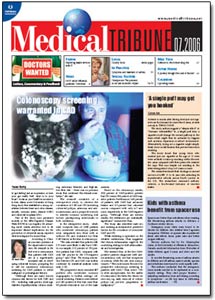Hysterectomy Rate is Still Too High

Copyright ©1995 Medical Tribune
Click here to watch the video interview of Dr. Cutler discussing her book; Hormones and Your Health
Click here for more information and research on hysterectomy
By Linda Carroll
American ob-gyns perform far too many hysterectomies-- five times as many as their European counterparts-- and mostly for benign conditions, according to experts at the recent annual meeting of the North American Menopause Society (NAMS) in San Francisco.
The uterus is an important organ whose removal can lead to serious sequelae, reported Winnifred Cutler, Ph.D. (click for bio), a biologist and behavioral endocrinologist at the Athena Institute in Haverford, PA* {now Chester Springs, PA} .
"If a woman is premenopausal when she has a hysterectomy (click for more information), it accelerates the rate of aging by about five years, even if you preserve the ovaries," she said. "We're learning that the uterus makes a contribution to keeping the ovaries vital and hormonally secreting."
Hysterectomized women also have a higher rate of cardiovascular disease and osteoporosis, Dr. Cutler added. "They lose bone more rapidly than if they had an intact uterus," she said. "The normal signs of bone loss are not the same, and a standard screening test won't give you the information you need."
Beyond these problems, there is the issue of sexual function, according to the Pennsylvania researcher. "All the reports have shown that women suffer orgasmic, arousal and libidinal deficits after hysterectomies," she said. "Studies that have looked at sexuality after hysterectomy all show deficits in a couple's sexual functioning."
Sexual difficulties after a hysterectomy may be due to a deficit of sex-attracting pheromones (click for more details), according to Dr. Cutler. She suspects that an intact uterus may be necessary for the production of sex-arousing substances. "Physicians have to understand that the uterus in not just a baby-making machine," she said. "It's a sexually responsive organ that does a lot of things for the body."
Dr. Cutler is currently directing a double-blind study of married hysterectomized women to see whether synthetic pheromones can improve a couple's sex-life.
In a workshop at the meeting, Dr. Cutler and Steven Goldstein, M.D., an associate professor of ob-gyn at New York University in New York City discussed uterus-sparing alternatives to hysterectomy when no malignancy is present.
Physicians often perform a hysterectomy to deal with abnormal bleeding, according to Dr. Cutler. "But our data show that after age 40 (click for more over-40 health information), blood flow changes in many women," she said.
"More than 50% of women have more days of bleeding during the perimenopausal period (click for more menopause research) than they did at age 30. Some bleed as frequently as every 15 days. These are normal changes to be expected during this time."
Contrary to expectations, studies suggest that hysterectomy may thrust a woman into a more severe menopause, Dr. Cutler said.
"If you look at the women coming into clinics seeking help for menopause, 60% to 65% of them have no uterus," she said.
END OF EXCERPT
COMMENT FROM ATHENA INSTITUTE: Both Athena Pheromone 10:13tm for women and Athena Pheromone 10Xtm for men are cosmetics that can increase your attractiveness to the opposite sex. Neither product is an “aphrodisiac.”